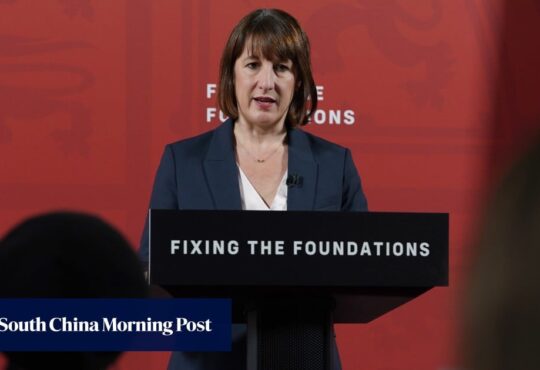U.S. And EU Conduct Fourth Meeting Of The Trade And Technology Council – Export Controls & Trade & Investment Sanctions

To print this article, all you need is to be registered or login on Mondaq.com.
On May 31, 2023, the United States and European Union held the fourth ministerial meeting of the
U.S.-EU Trade and Technology Council (“TTC”). The TTC is
a consultative forum created to coordinate approaches to key global
trade, economic, and technology issues, and to deepen transatlantic
economic relations. The TTC’s joint statement can be found here.
The fourth ministerial meeting covered a wide range of topics
that focused on countering obstacles to the G7’s international
rules-based system, including, among other things, diversifying
supply chains, sanctions coordination, investment screening, and
addressing emerging technologies such as quantum. Below is a select
outline of the TTC’s outcomes and what to look for from the
U.S. and EU going forward.
Cooperation on export controls and
sanctions. Following Russia’s invasion of
Ukraine, the U.S. and EU developed chains of communication to
ensure that measures put in place to punish Russia for its actions
were watertight. In particular, both the Treasury Department’s
Office of Foreign Assets Control and the
Commerce Department’s Bureau of Industry and Security have issued
statements outlining the cooperation between the U.S. agencies and
their European counterparts.
The TTC seeks to grow this cooperation through the consistent
exchange of information on the application of controls as well as
working to address enforcement and circumvention risks. Indeed, the
U.S. and EU are coordinating with third countries to counter
evasion of export restrictions on sensitive items and are
conducting capacity building projects to enable third
countries’ authorities to target export control evasion and
circumvention more effectively.
Additionally, the TTC is working towards simplifying re-export
procedures for exporters and developing a common understanding of
how U.S. and EU export regulations are applied on both sides of the
Atlantic. To that end, the U.S. and EU are also enhancing their
technical consultation on regulatory developments.
Inbound investment screening. Last
year, the U.S. announced measures aimed at strengthening its inbound investment screening
mechanism, the Committee on Foreign Investment in the United States
(“CFIUS”). The TTC recognizes the importance of CFIUS and
similar EU mechanisms in flagging national security risks related
to specific sensitive technologies and critical infrastructure. The
TTC resolved to enhance U.S. and EU cooperation on inbound
screening.
Outbound investment screening. Earlier this year, the U.S. took initial steps
to “address the national security threats emanating from
outbound investments from the United States in certain sectors
critical for U.S. national security” and identify “the
resources that would be required to establish and implement”
such a screening program. The EU is also looking at developing a
similar screening process for outbound investments. At the
ministerial, the TTC recognized that addressing outbound investment
concerns could be important to complement existing tools of
controls on exports and inbound investments, and to that end, the
TTC will be working on a coordinated response to outbound
investment concerns pertaining to national security.
Semiconductors. One of the TTC’s
overarching goals is securing supply chains for equitable use,
which especially includes semiconductors as a critical technology.
To that end, the TTC has developed an early warning mechanism for
disruptions in the semiconductor supply chain. The TTC is also
mindful of the competing U.S. CHIPS and Science Act and the
European Chips Act. To prevent a “race to the bottom,”
the TTC has put in place a consultation process to facilitate
communication that will prevent further subsidy escalations.
Quantum technology. The TTC,
recognizing the complex and fast-paced nature of the advancement of
quantum technology, has established a joint Task Force to address
open questions on science and technology cooperation in quantum
technologies. The Task Force will be responsible for ensuring
collaboration in research & development, the identification of
critical components, standardization, defining benchmarking of
quantum computers, and export control related issues for this
technology.
Critical minerals. The TTC emphasized
the need for the U.S. and EU to work together on supply chains for
critical minerals, metals, and material inputs. The U.S. and EU are
both reliant on imports, often from limited sources. This reliance
leaves the countries vulnerable to disruptions such as geopolitical
shocks and natural disasters. The TTC will be prioritizing securing
the critical mineral supply chain going forward.
What’s Next?
The U.S. and EU, despite recent irritants regarding subsidies in
the aforementioned CHIPS and Science Act and the European Chips
Act, will continue to develop their policy coordination and
implementation on amicable terms. The transatlantic economic
relationship still has a lot of room to grow with a laser focus on
boxing out countries that are looking to circumvent the G7’s
international framework. While there may be challenges in
implementing some of the outcomes of the TTC’s meeting, the
U.S. and EU will likely be able to contain any potential setbacks
through constructive dialogues established by the TTC.
The content of this article is intended to provide a general
guide to the subject matter. Specialist advice should be sought
about your specific circumstances.
POPULAR ARTICLES ON: International Law from Worldwide







